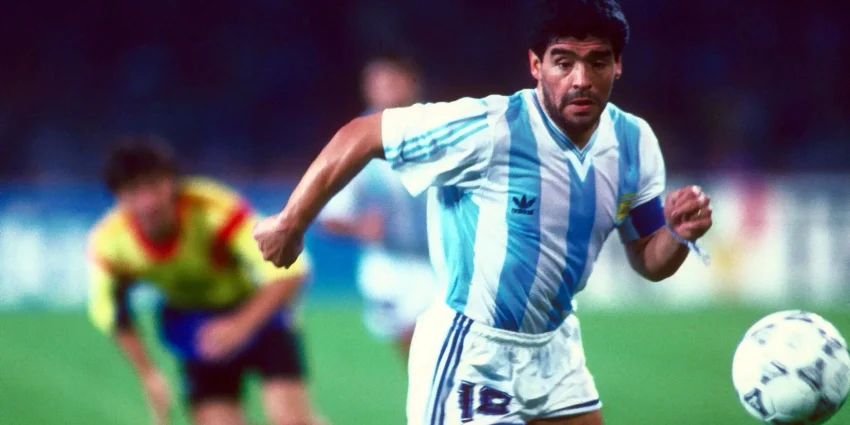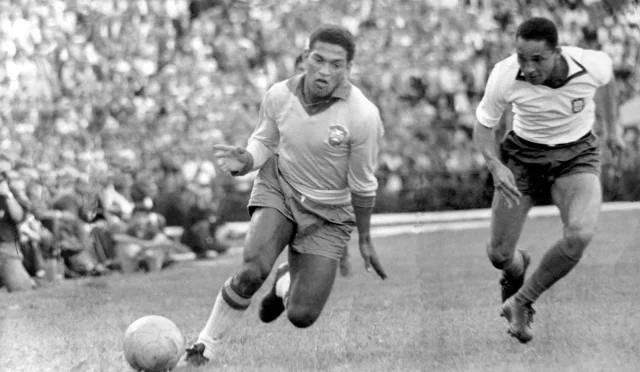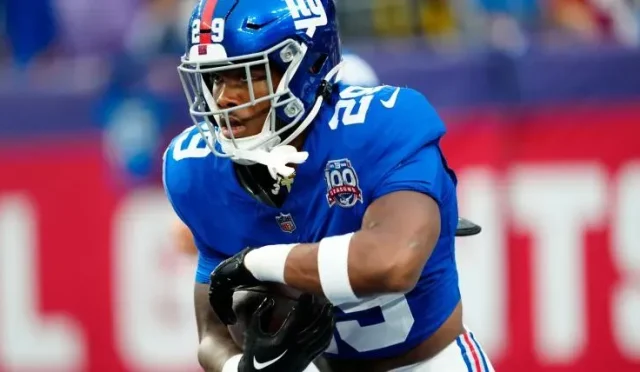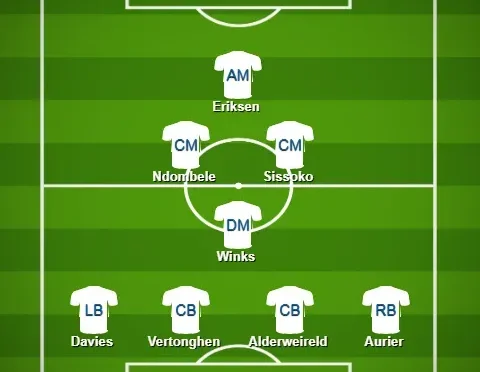Diego Maradona, one of the most iconic figures in football history, was born on October 30, 1960, in Lanus, Buenos Aires, Argentina. Revered for his unmatched skills and extraordinary vision on the field, Maradona’s football career spanned several decades, during which he captured the hearts of millions with his performances and unforgettable highlights. His crowning achievement came in 1986 when he led the Argentine national team to victory in the World Cup, showcasing his exceptional talent and determination. Maradona’s biography reveals a journey that went from humble beginnings to becoming a global sports legend, with accolades that include league titles across Argentina, Italy, and beyond. Whether through his renowned “Hand of God” goal or his dazzling dribbles, Maradona’s achievements continue to inspire future generations of footballers around the world.
Known as the maestro of the pitch, Diego Maradona’s legacy transcends mere statistics and accolades; he is a symbol of passion, resilience, and artistry in the realm of soccer. This Argentine superstar, whose career is highlighted by phenomenal achievements, was celebrated not just for his ability to score but for his creative flair that transformed the game. Widely regarded as a footballing genius, his impact on international tournaments, especially the World Cup, remains etched in sports history. Maradona’s journey—from a young talent on the streets of Buenos Aires to a global icon—serves as a testament to his extraordinary football career and the deep emotional connection he forged with fans worldwide.
Diego Maradona: Early Life and Football Beginnings
Diego Maradona was born in Lanus, Buenos Aires, and showed an impressive affinity for football from a very young age. At just eight years old, he joined Las Cebollitas, a renowned boys’ team, where he honed his skills, leading them to a remarkable 136 consecutive match victories. His early talent propelled him into the spotlight, and by age 14, Maradona had signed with Argentinos Juniors. Here, he made a significant impact by becoming one of the youngest players to debut in Argentina’s first division, showcasing his prodigious talent to a national audience.
Despite being young and overlooked for the 1978 World Cup, Maradona quickly rose through the ranks, leading the youth national team to a Junior World Cup victory in 1979. This victory not only marked him as a promising talent but also set the stage for his legendary football career. His raw talent, unmatched ball control, and ability to innovate on the field were evident in these formative years, shaping the player who would later become a global football icon.
Maradona’s Incredible Achievements in Football
Maradona’s professional career was marked by extraordinary achievements, establishing him as one of the greatest players in football history. His club success began with Boca Juniors, where he made an immediate impact by helping the team secure a championship title in 1981. However, his most significant contributions came during his time at Napoli, where Maradona transformed the club’s fortunes, leading them to their first Serie A title in 1987 and the Coppa Italia in the same year. His leadership and skill elevated Napoli from an underdog to a powerhouse in Italian football.
Maradona’s achievements were not limited to club football. Internationally, he led Argentina to win the 1986 World Cup, where his performance was nothing short of phenomenal, earning him the FIFA World Cup Golden Ball as the tournament’s best player. His unforgettable ‘Hand of God’ goal and the breathtaking second goal against England in the quarterfinals have secured his status as a football legend. Throughout his career, he played a pivotal role in every team he represented, leaving behind a legacy of excellence and a plethora of individual awards that affirm his rightful place in football history.
Iconic Moments: Maradona at the World Cup
Diego Maradona’s World Cup moments remain etched in the minds of football fans worldwide. The pinnacle of his international career came during the 1986 World Cup in Mexico, where he not only led Argentina to victory but also delivered one of the most memorable performances in football history. His magic, including the infamous ‘Hand of God’ goal, which he scored in the quarterfinal against England, showcased his cunning and confidence. This controversial goal, followed by the more celebrated ‘Goal of the Century,’ where Maradona dribbled past five England players to score, highlighted his incredible skill and football intelligence.
These two goals exemplify Maradona’s dual nature as both a cunning strategist and a gifted player who could change the course of a match in an instant. During subsequent World Cups in 1990 and 1994, Maradona’s influence remained significant, though various challenges led to ups and downs, including suspensions due to drug use that overshadowed his latter appearances. However, his legacy from the 1986 World Cup stands as a testament to his extraordinary talent and determination, securing his place as one of the game’s all-time greats.
Diego Maradona’s Impact on Argentine Culture
Diego Maradona transcended football, becoming an emblem of Argentine pride and culture. His journey from humble beginnings in Lanus to international superstardom resonated with the Argentine populace, particularly among the working class. His fierce competitive spirit and on-field exploits were seen as a reflection of the struggles and aspirations of many Argentines. Maradona’s deep-rooted connection to his roots established him not only as a sports figure but as a national hero, especially in southern Italy, where he became a champion for the downtrodden.
In addition to his sporting achievements, Maradona’s persona off the field also influenced Argentine society. He was often seen as a voice for the marginalized and contributed to various social causes. This profound connection to his fanbase was further solidified during his coaching stint and public appearances, where fans celebrated him as a legend. The indelible mark he left on Argentina continues to be honored through commemorations, reflecting how deeply intertwined his legacy is with the nation’s identity.
Maradona’s Legacy Beyond Football
Even after his retirement, Diego Maradona’s legacy in the world of football and beyond continues to inspire generations. He is not just remembered as a player but as a cultural icon who embodied passion and creativity. His unique playing style combined with treacherous agility on the field solidified his status among the greatest players of all time. The acclaim he received from soccer legends and organizations, including being named FIFA’s Player of the Century, exemplifies his everlasting impact on the sport.
In his later years, Maradona ventured into coaching, influencing the next generation of players. Despite challenges, including personal struggles, his dedication to football remained evident. Clubs and nations sought to emulate his playing philosophy. His contributions to football tactics and his style of play will continue to inspire future athletes and coaches aiming to capture his indomitable spirit. Maradona’s legacy in football serves as a reminder of how a single player can impact the sport and culture of an entire nation.
Exploring Maradona’s Football Career
Diego Maradona’s illustrious career spanned over two decades, during which he became a global ambassador for the sport. His football journey began with Argentinos Juniors and continued through several top-tier clubs, including Boca Juniors, FC Barcelona, and Napoli. At each stage of his career, he not only showcased extraordinary skill and creativity but also transformed the teams he played for, leading them to numerous victories and championships. His remarkable club performance culminated in a series of league titles and cups that set benchmarks in football history.
Moreover, Maradona’s football career was characterized by ups and downs. His exceptional talent was often overshadowed by personal challenges, including substance abuse and temporary suspensions from the sport. Nevertheless, his ability to overcome adversity and return to the field continued to inspire countless fans and aspiring athletes. Ultimately, Maradona’s enduring legacy is marked by his extraordinary contributions, achievements, and the joy he brought to football, making him a true legend and a centerpiece in the history of the game.
Diego Maradona: A Trendsetter in Football
Maradona’s influence extended beyond his playing style; he was a trendsetter in football, often pushing boundaries and challenging norms. His flair on the field coupled with his charismatic personality made him one of the most recognizable figures in sports history. He pioneered a style of play that emphasized creativity, vision, and unrelenting determination. Maradona was known for his outrageous dribbling skills and fierce shots on goal, inspiring future generations of footballers to express themselves freely on the field and embrace their unique talents.
He became a role model for many aspiring players, advocating for the importance of individuality in football. Maradona’s ability to captivate audiences with his unpredictable play and infectious passion established a new standard for performance in the sport. As younger players draw inspiration from his iconic highlights and career stats, it is clear that Maradona’s impact goes well beyond the football field, showcasing how a single player can shape the game for years to come.
Maradona’s Coaching Career: Triumphs and Challenges
Following a remarkable playing career, Diego Maradona transitioned into coaching, where he aimed to impart his extensive knowledge and passion for the game. He was appointed head coach of the Argentine national team in 2008, leading them to the quarterfinals of the 2010 World Cup. His tenure was marked by a blend of tactical prowess and personal charisma, allowing him to connect with players as few coaches could. However, while he achieved moments of triumph, his coaching career also faced challenges, particularly regarding contract negotiations and team performance.
Maradona ventured into club management after his time with the national team, taking positions with various clubs, including Al Wasl in the UAE and Dorados in Mexico. Despite initial excitement, his coaching exploits were often met with mixed results and struggles in achieving stability within his teams. Nevertheless, Maradona remained undeterred, demonstrating his unrelenting love for football. His commitment to coaching and his passionate approach serve as a reminder of his undying devotion to the sport he so profoundly impacted.
Remembering Diego Maradona: A Legend Lives On
The passing of Diego Maradona on November 25, 2020, marked the end of an era in football. His legacy as one of the greatest players will forever resonate in the hearts of fans worldwide. Tributes poured in from around the globe, highlighting not just his football achievements, but also his contributions to societal change. Fans remember him as a complex character—brilliant on the field yet challenged off of it—who encapsulated the essence of football’s passion and pain.
Maradona’s impact on football transcends records and statistics. His journey from a small boy in Lanus to a global icon symbolizes hope and ambition. The fairytale of his life story continues to inspire aspiring footballers and fans alike, compelling them to push boundaries in pursuit of greatness. Undoubtedly, Diego Maradona remains a celebrated figure, and his legacy will continue to inspire future generations to embrace the beautiful game.
Frequently Asked Questions
What are some key facts from Diego Maradona’s biography?
Diego Maradona, born on October 30, 1960, in Lanus, Argentina, is celebrated as one of the greatest football players of all time. His biography showcases a journey from joining Las Cebollitas at age eight to becoming a global football icon. Maradona led Argentina to victory in the 1986 World Cup and left an indelible mark in clubs like Napoli and Boca Juniors.
What were Diego Maradona’s most significant achievements in football?
Diego Maradona’s achievements include leading Argentina to win the 1986 World Cup, being named the FIFA Player of the 20th Century, and securing league titles with Napoli. He is famous for his two iconic goals against England in the 1986 World Cup quarterfinals, symbolizing his greatness in football history.
Can you summarize Diego Maradona’s football career?
Diego Maradona’s football career began with Argentinos Juniors at age 16 and included stints at Boca Juniors, FC Barcelona, and SSC Napoli. He gained fame in Italy, transforming Napoli into a dominant force. His international career saw him compete in four World Cups, with a spectacular performance in 1986 that solidified his legacy.
What was Diego Maradona’s impact during the World Cup?
Diego Maradona’s impact at the World Cup is most notable in 1986 when he captained Argentina to victory. His ‘Hand of God’ goal and the remarkable solo goal against England showcased his exceptional skill. Overall, Maradona played in four World Cups, with his 1986 performance being widely regarded as one of the best in tournament history.
What are some memorable highlights from Diego Maradona’s career?
Diego Maradona’s career highlights include winning the 1986 World Cup, his remarkable dribble and goal against England, and his extraordinary playmaking skills throughout his time with Napoli and the Argentine national team. His ability to change the course of a game made him a beloved figure in football.
How did Diego Maradona influence football culture in Argentina?
Diego Maradona influenced Argentine football culture by becoming a symbol of hope for the lower classes and representing Argentina’s football passion on the global stage. His background and achievements resonated with many, making him a cultural icon beyond just sports.
What was Diego Maradona’s coaching career like?
Diego Maradona’s coaching career included a pivotal role as head coach of the Argentine national team during the 2010 World Cup, where he led the team to the quarterfinals. He later coached several clubs, including Al Wasl in the UAE and Dorados de Sinaloa in Mexico, demonstrating his enduring commitment to football.
How did Diego Maradona’s legacy impact future generations of footballers?
Diego Maradona’s legacy continues to inspire future generations of footballers through his incredible skills, passion for the game, and determination. His story encourages young athletes worldwide to pursue their dreams, embodying the spirit of resilience and excellence in football.
| Key Points |
|---|
| Diego Armando Maradona was born on October 30, 1960, in Lanus, Buenos Aires, Argentina. |
| Maradona is recognized as one of the greatest footballers of all time, especially noted for his performance in the 1980s. |
| He showcased exceptional ball control and playmaking abilities that led to numerous championships with club teams. |
| Maradona played for club teams including Argentinos Juniors, Boca Juniors, FC Barcelona, and SSC Napoli, achieving great success, especially with Napoli. |
| He led the Argentine national team to a World Cup victory in 1986, famous for the ‘Hand of God’ and his solo goal against England. |
| Maradona had a tumultuous career, faced suspensions due to drug-related issues and struggled in coaching roles after retirement. |
| He passed away on November 25, 2020, and is remembered as a hero to many, especially among the lower classes of Argentina. |
Summary
Diego Maradona remains an iconic figure in the world of football, remembered for his extraordinary talent and contributions to the sport. His legacy as a greatest footballer is secure, highlighted by his incredible achievements on the field, including leading Argentina to World Cup glory in 1986. Throughout his life, Maradona’s ups and downs captured the hearts of fans, making him a relatable hero for many. His impact on football is profound, ensuring he will forever be celebrated as one of the sport’s all-time greats.








